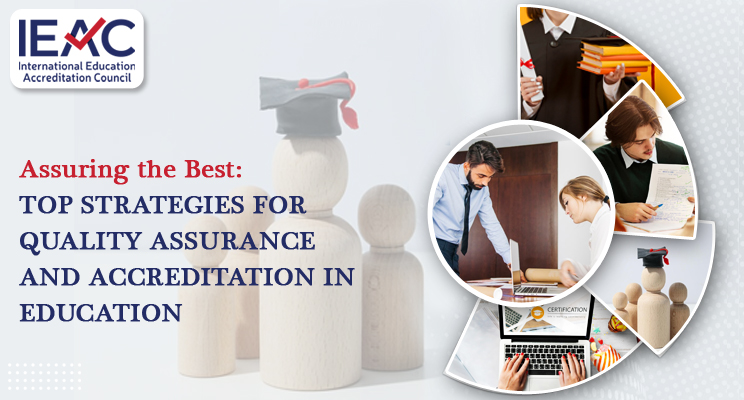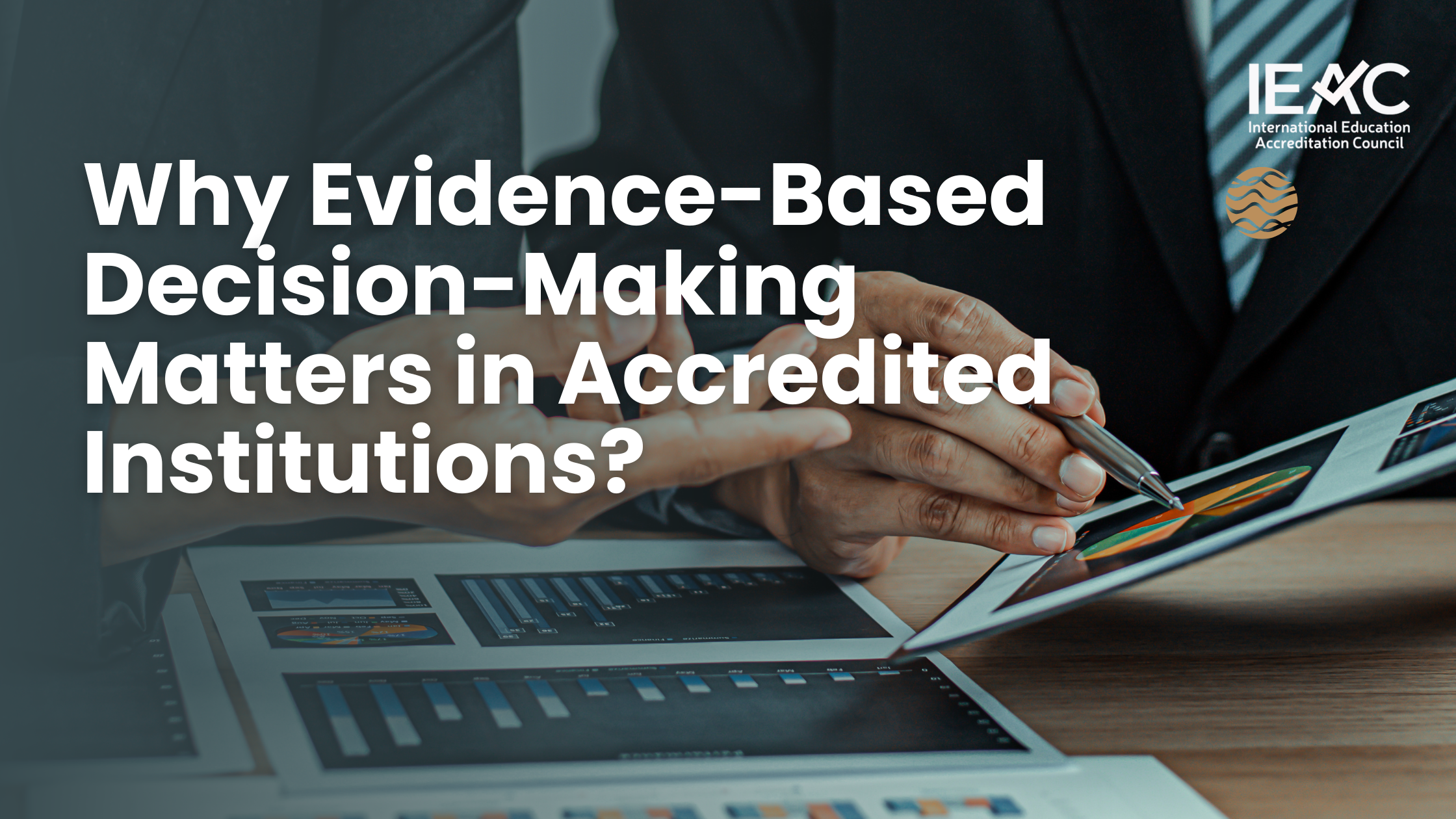- Home
- About IEAC
- Accreditation
- University Accreditation
- College Accreditation
- Online Institution Accreditation
- School Accreditation
- University Recruitment Agency Accreditation
- Programmatic Accreditation
- Teacher/ Lecturer Accreditation
- Religious Institutes Accreditation
- Affiliate Accreditation
- Research Accreditation Candidacy Accreditation
- IEAC Membership
- Institutions Accredited
- Accreditation Process
- Contact Us Webinar Apply Now
Blog
Assuring the Best: Top Strategies for Quality Assurance and Accreditation in Education
Lorem ipsum dolor sit amet, consectetur adipiscing elit, sed do eiusmod tempor incididunt ut labore et dolore magna aliqua. Quis ipsum suspendisse ultrices gravida. Risus commodo viverra maecenas accumsan lacus vel facilisis.

Assuring the Best: Top Strategies for Quality Assurance and Accreditation in Education
Quality assurance and accreditation are the cornerstones of a robust education system. Institutions worldwide strive to meet rigorous academic standards that ensure students receive the best education possible. Achieving and maintaining accreditation is not just about compliance; it reflects a commitment to continuous improvement, institutional excellence, and global recognition. Here are the top strategies for ensuring quality assurance and accreditation in education.
1. Establishing a Comprehensive Quality Framework
A well-defined quality assurance framework is crucial for maintaining educational standards. Institutions must establish clear policies, procedures, and benchmarks that align with national and international accreditation bodies. A structured framework should include:
- Institutional mission and vision that prioritize academic excellence.
- Defined learning outcomes to measure student success.
- Regular policy reviews to align with changing educational trends.
2. Adopting Data-Driven Decision-Making
Institutions must leverage data analytics to track student performance, faculty effectiveness, and institutional efficiency. By collecting and analyzing data, educators can:
- Identify areas of improvement.
- Predict student success rates.
- Optimize resource allocation.
- Improve curriculum based on performance trends.
3. Implementing Rigorous Curriculum Standards
An institution's curriculum should be dynamic, relevant, and globally competitive. To ensure quality, universities and colleges must:
- Align curriculum with industry needs and emerging trends.
- Integrate experiential learning such as internships, research, and case studies.
- Regularly review and update courses to meet accreditation standards.
4. Faculty Development and Engagement
Qualified and engaged faculty are essential for delivering high-quality education. To maintain accreditation, institutions should:
- Conduct faculty training programs to enhance teaching methods.
- Encourage continuous research and professional development.
- Implement faculty evaluation mechanisms based on student feedback and peer review.
5. Strengthening Student Support Services
Quality education extends beyond the classroom. Accreditation bodies assess the availability of student support services, including:
- Academic advising to guide students in their educational journey.
- Career counseling and placement assistance.
- Mental health and well-being support.
- Extracurricular and leadership development programs.
6. Emphasizing Research and Innovation
Accredited institutions prioritize research and encourage innovation. To foster a research-driven environment, educational institutions should:
- Invest in state-of-the-art research facilities.
- Encourage collaborations with industry and academia.
- Provide grants and funding opportunities for faculty and students.
7. Ensuring Robust Governance and Leadership
Strong institutional governance plays a vital role in quality assurance. Effective leadership can:
- Develop transparent policies and procedures.
- Foster a culture of accountability and ethical decision-making.
- Align institutional goals with global accreditation requirements.
8. Encouraging Stakeholder Involvement
Quality assurance is a collective effort that involves students, faculty, alumni, and industry professionals. Engaging stakeholders through:
- Regular feedback mechanisms to improve institutional policies.
- Partnerships with businesses and industries for real-world exposure.
- Alumni networks to track long-term educational impact.
9. Leveraging Technology for Accreditation Compliance
Digital transformation has made quality assurance and accreditation processes more efficient. Institutions can use:
- Learning management systems (LMS) for tracking academic progress.
- Automated assessment tools for student evaluation.
- Blockchain and AI-driven accreditation systems to maintain transparency.
10. Continuous Monitoring and Self-Assessment
Accreditation is not a one-time event but a continuous process. Institutions should:
- Conduct internal audits and peer reviews.
- Regularly assess student learning outcomes.
- Implement an ongoing quality improvement cycle based on assessment findings.
To End With
Assuring quality and achieving accreditation in education requires a strategic, data-driven, and student-focused approach. By implementing these top strategies, institutions can not only maintain their accreditation status but also enhance their reputation, attract global students, and contribute to the advancement of education. Prioritizing continuous improvement, faculty excellence, and student success will pave the way for a future-ready, high-quality education system.






